Handball defense is primarily based on zone defense, where players protect the goal area line (6-meter line). The main defensive formations are listed below, each with a different strategic objective.
6-0 Defense
6-0 Defense
- Features: All six defenders line up in a single horizontal line along the 6-meter line. It’s the most basic and common system.
- Objective: To solidify the area in front of the goal and prevent opponents’ cut-ins and pivot plays. This system is easy to coordinate and good for beginners.
Weakness: It’s difficult to put pressure on opponents taking long shots.
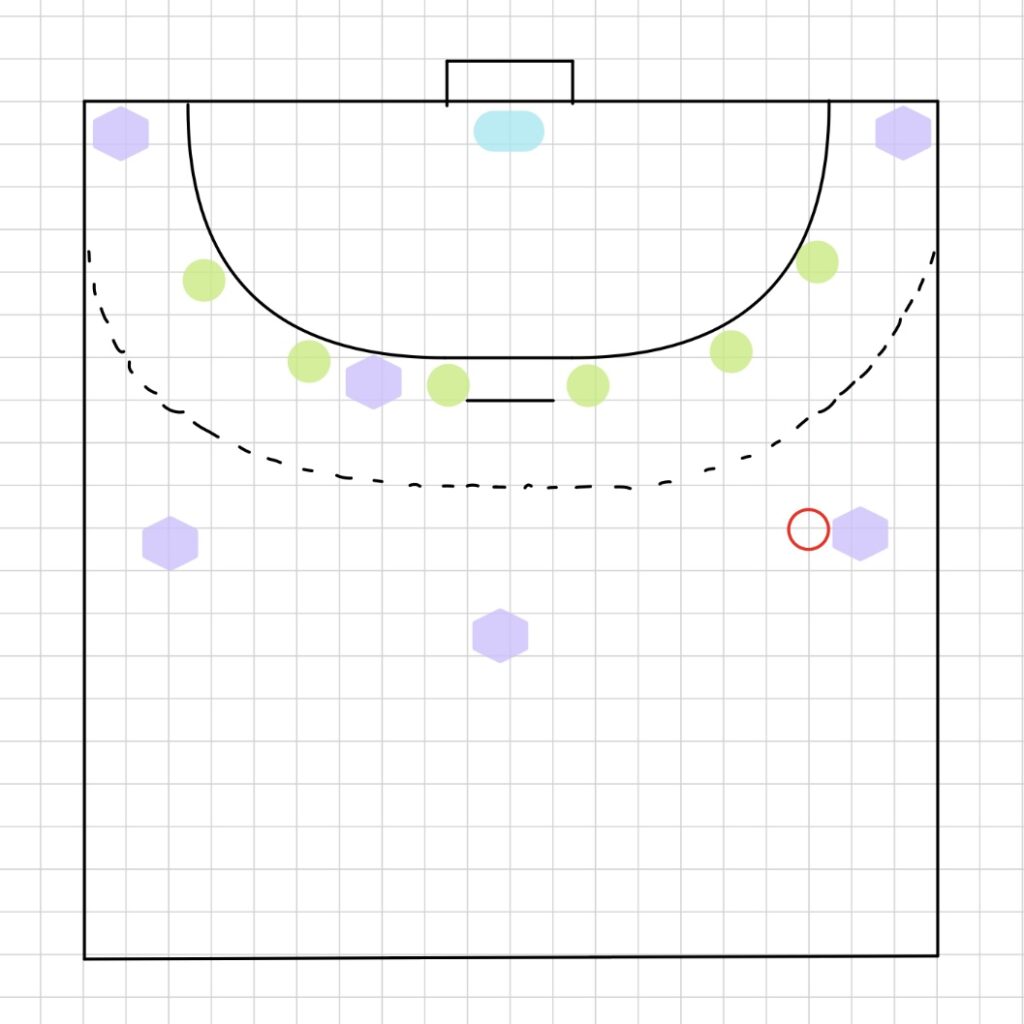
5-1 Defense
- Features: Five players defend the 6-meter line, while one player (the “top”) steps forward to disrupt the opponent’s passing.
- Objective: To pressure the backcourt players and force turnovers by intercepting passes.
- Weakness: The space behind the top player is exposed, which can lead to easy scores if the opponent breaks through.
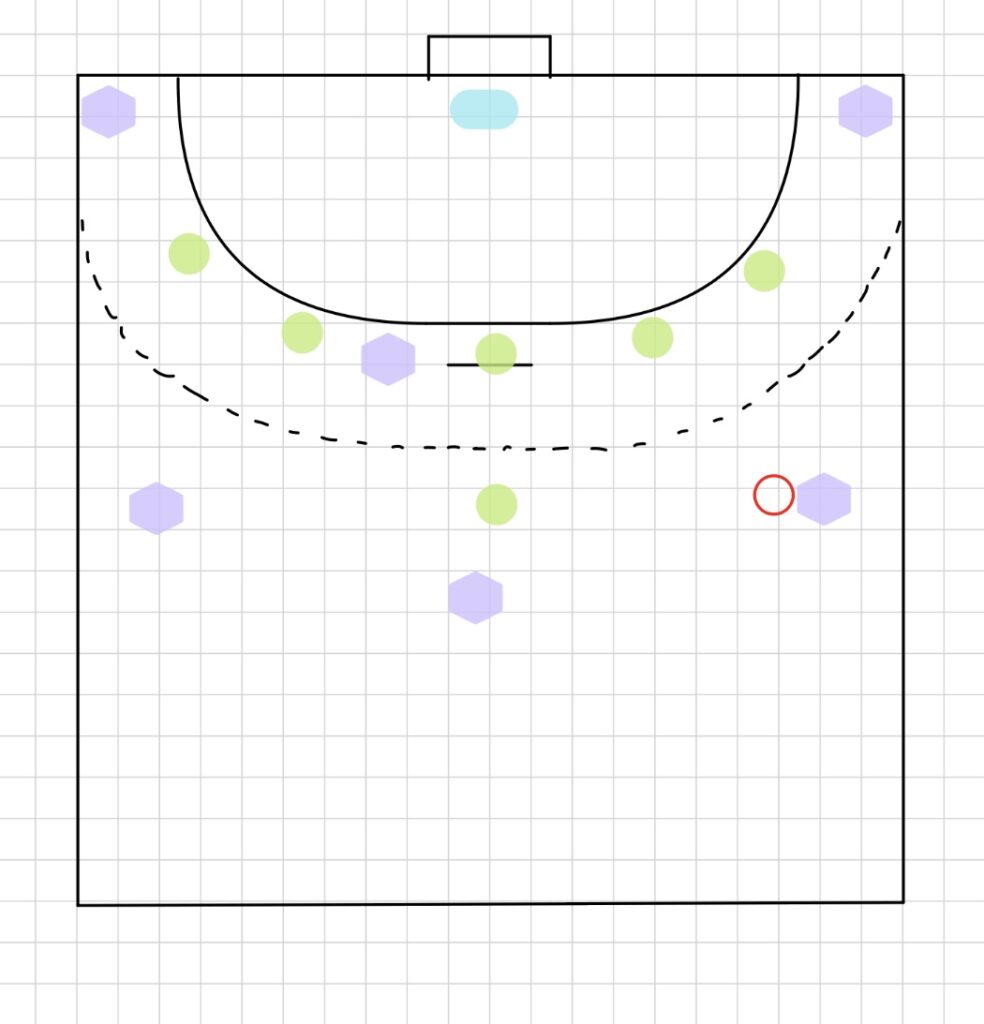
4-2 Defense
- Features: Four players defend the 6-meter line, and two players step forward.
- Objective: To aggressively pressure two of the opponent’s backcourt players, limiting their passing options and attempting to steal the ball.
- Weakness: The defensive formation can be unstable, requiring strong teamwork and high individual defensive skills.
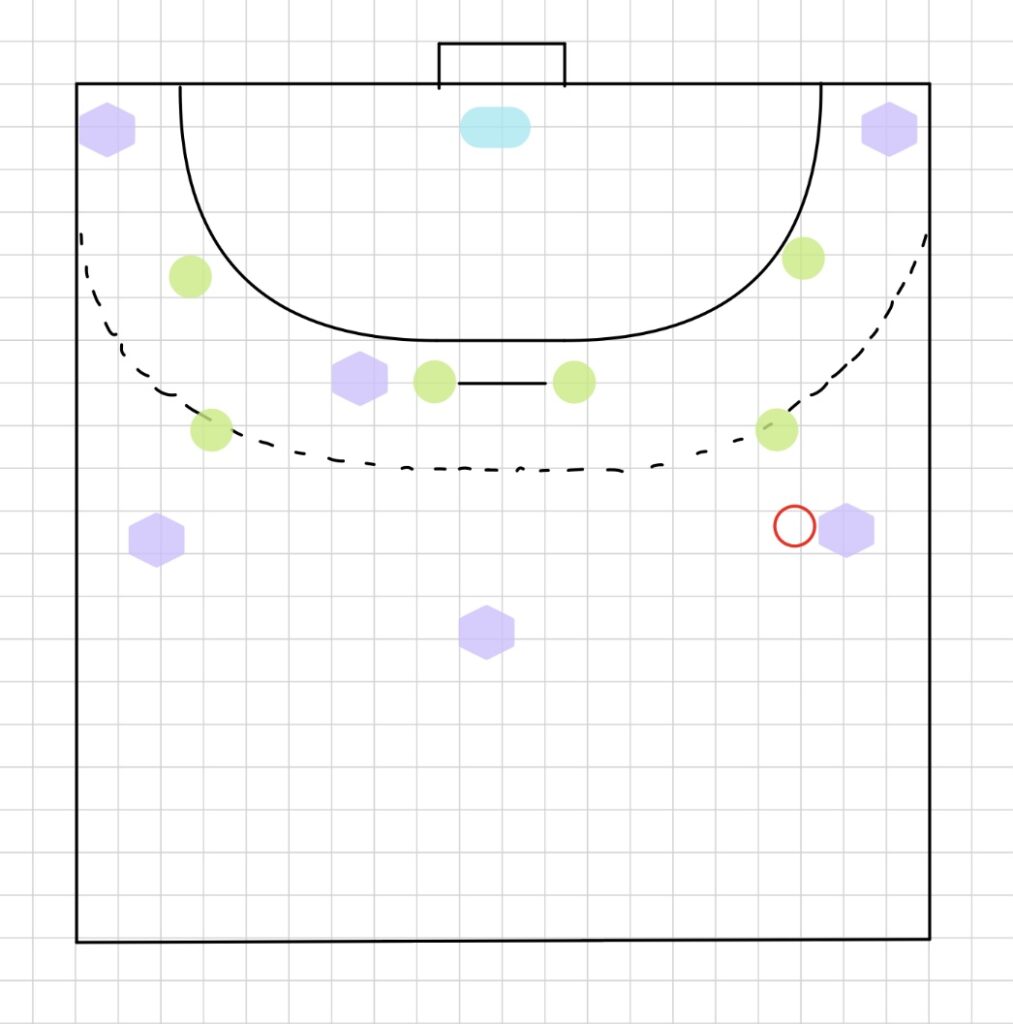
3-3 Defense
- Features: Three players defend the 6-meter line, and three players defend on the front line. This is a very aggressive system.
- Objective: To powerfully disrupt the opponent’s passing and individual plays, aiming to steal the ball and initiate a fast break.
- Weakness: This is a very high-risk tactic, as the defense is left with many open gaps.
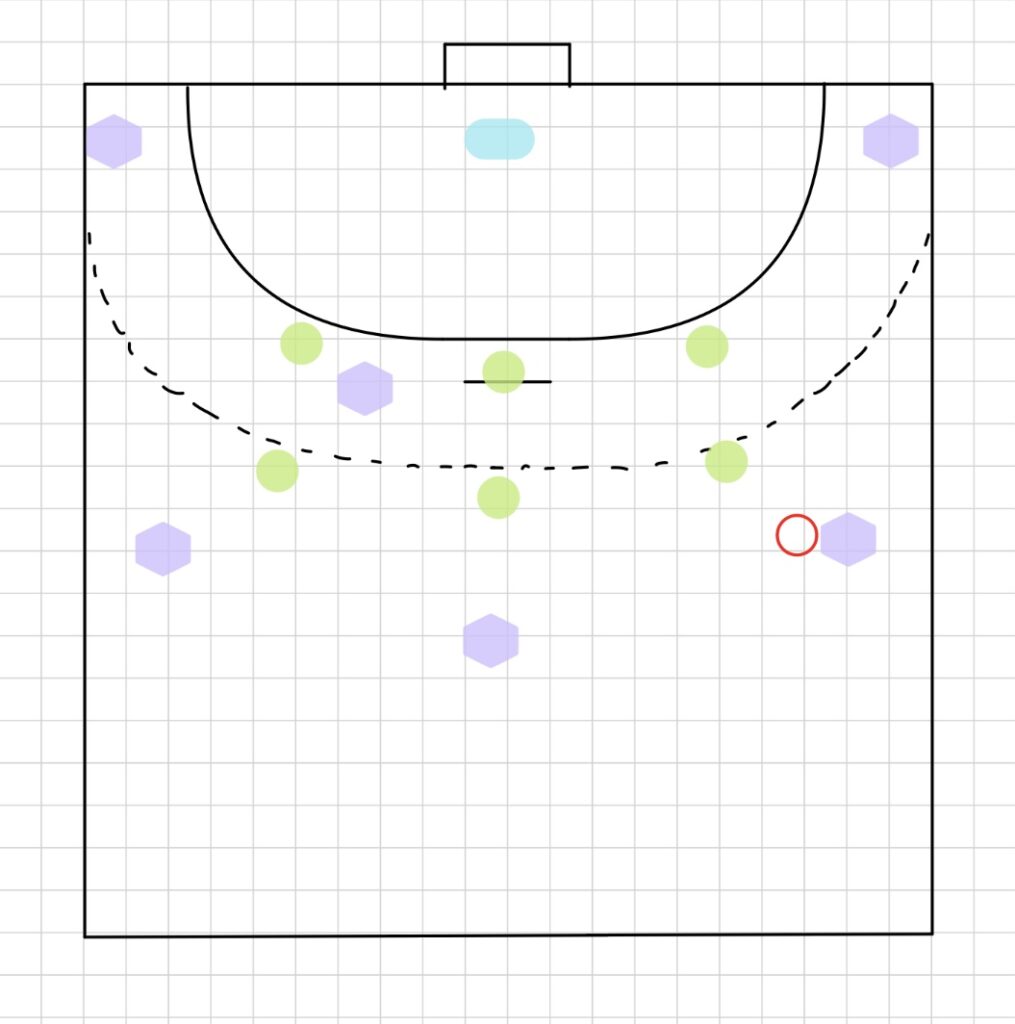
Conclusion
In this article, we’ve explored the main defensive systems in handball: the 6-0, 5-1, 4-2, and 3-3. Each system has distinct features and objectives, and choosing the right one depends on your team’s strengths and the opponent’s offensive style.
- 6-0: The most solid defense, designed to protect the goal area.
- 5-1: An aggressive system that disrupts opponent passing.
- 4-2: A tactic focused on increasing pressure on backcourt players.
- 3-3: A high-risk, high-reward, highly aggressive defense.
There is no single “best” system. The key is to have a deep understanding of each one and to execute it effectively as a coordinated team. The ability to flexibly adapt your defense to the flow of the game and outsmart your opponent is what will ultimately lead to victory.
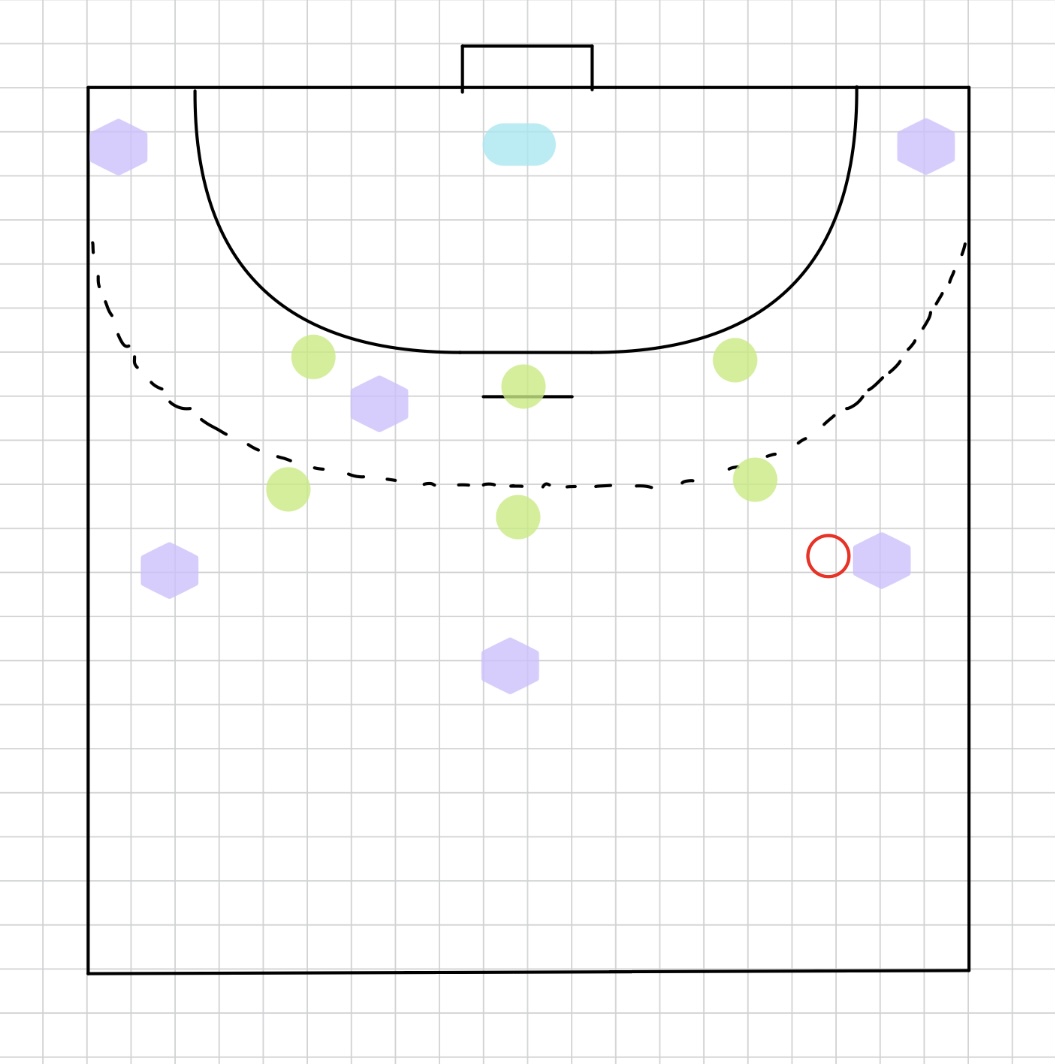
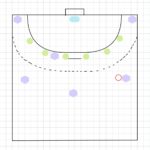
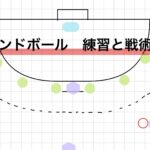
コメント